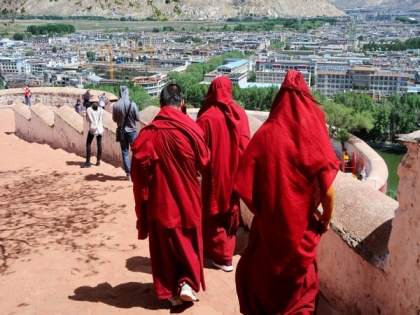China's authoritarian rule, policies threaten fragile ecosystem of Tibet
By ANI | Published: January 20, 2023 09:18 AM2023-01-20T09:18:30+5:302023-01-20T14:50:02+5:30
Wreaking environmental havoc in Tibet under its authoritarian rule, China has been terrorising its fragile ecosystem with its practices, ...

China's authoritarian rule, policies threaten fragile ecosystem of Tibet
Wreaking environmental havoc in Tibet under its authoritarian rule, China has been terrorising its fragile ecosystem with its practices, affecting the land and way of life of Tibetans.
The region is currently experiencing severe environmental problems, the reason being the exploitation of its natural resources and ecology. Most of the time, several problems are raised due to the management of infrastructure projects, tourism, climate change and displacement of local populations, according to Tibet Press.
However, instead of being put to light, the issues in Tibet are often seen as a subject of territorial conflict as Beijing continues to use Tibet's nature-dependent systems for its own gain, utilising it as a dumping ground and wreaking massive environmental damage.
Further, the abuse of human rights in Tibet by China continues to remain prevalent alongside the destruction of Tibet's environment in the form of deforestation, illegal mining, and dam construction, often resulting in a violation of the right to water.
The establishment of colonial boarding schools to keep young Tibetans away from their traditions, the use of a grid-lock system to restrain Tibetans, and the collection of DNA samples and iris scans to track down dissidents inside Tibet, as well as other alarming issues, are just a few examples of China's violations of Tibetans' human rights and cultural practices.
Citing the media reports, Tibet Press stated that the Chinese government is constructing a 1,000 km long tunnel to transport water from the Brahmaputra to the dry parts of western China, which will extend from close to Tsangmo in Tibet to the Taklamakan desert in Xinjiang.
Two of the largest rivers in the Indian subcontinent, the Brahmaputra and the Indus, originate in Tibet. And now, under its project, China plans to import water from Tibet to help with the water deficit, according to Tibet Press.
In fact, experts have already issued warnings that the biodiversity of Tibet will be wiped out by this tunnel. The project will also increase the risk of earthquakes.
Moreover, in the most recent World Heritage Watch Report by the International Campaign for Tibet, a Tibetan natural reserve inscribed as a UNESCO World Heritage Site five years ago, was called for to have its status reviewed.
Also designated as a World Heritage Site was Tibet's Hoh Xil (Achen Gangyap) nature reserve which the Chinese government claimed to be a no-man's land despite Tibetan nomads using the area. The reserve's status has not been reassessed since 2017.
Hoh Xil is situated in the Yushu Tibetan Autonomous Prefecture in the Qinghai Province. The October edition of the 2022 World Heritage Watch report has an analysis from ICT regarding the nature reserve and how, according to the new deadlines set for UNESCO's Third Cycle of Periodic Reporting, China is not required to submit a periodic review of Hoh Xil until 2024, reported Tibet Press.
( With inputs from ANI )
Disclaimer: This post has been auto-published from an agency feed without any modifications to the text and has not been reviewed by an editor
Open in app